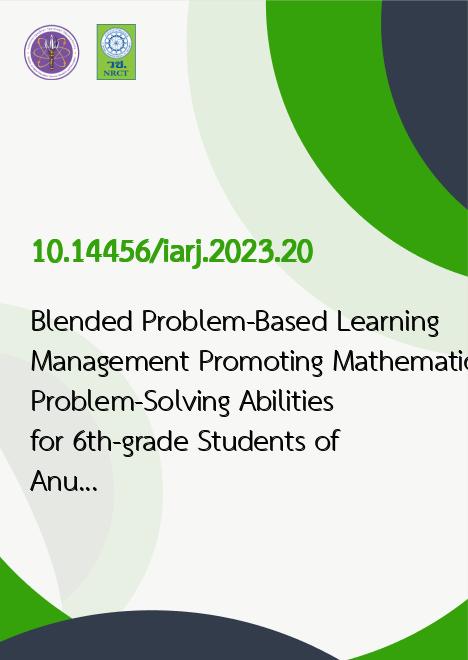
|
Blended Problem-Based Learning Management Promoting Mathematical Problem-Solving Abilities for 6th-grade Students of Anuban Rattana Kalasin School |
|---|---|
| รหัสดีโอไอ | |
| Creator | Tanapol Jatuporn |
| Title | Blended Problem-Based Learning Management Promoting Mathematical Problem-Solving Abilities for 6th-grade Students of Anuban Rattana Kalasin School |
| Publisher | DR.KEN Institute of Academic Development and Promotion |
| Publication Year | 2566 |
| Journal Title | Interdisciplinary Academic and Research Journal |
| Journal Vol. | 3 |
| Journal No. | 1 |
| Page no. | 295-312 |
| Keyword | Problem-based learning, Blended learning, Mathematics Problem Solving Skill |
| URL Website | https://so03.tci-thaijo.org/index.php/IARJ/about |
| Website title | https://so03.tci-thaijo.org/index.php/IARJ/article/view/265933 |
| ISSN | 2774-0374 |
| Abstract | Mathematics plays a crucial role in the development of human thinking, fostering creativity, logical and systematic thinking, and the ability to thoroughly analyze problems and situations. It can be applied in daily life correctly and appropriately. According to the results of the Ordinary National Education Test, most students have lower achievement in mathematics than the standard and lack the ability to solve mathematical problems. The purpose of this research aimed to, 1) study Blended Problem Base learning management on the development of Mathematical problem-solving abilities of 6th-grade students at Anuban Rattana Kalasin school, 2) study the abilities of mathematics problem-solving by Blended Problem Based Learning, 3) study the satisfaction of students on blended problem-based learning management. The participants of this research were 38 students in 6th grade in the second semester of the 2018 educational year at Anuban Kalasin School. This research was classroom action research. The research instruments included a Blended Problem Base learning lesson plan, a Mathematical problem-solving abilities test, a satisfaction questionnaire, student journals, and a student interview guide. Data analysis of this research was 1) qualitative data analysis by analyzing data, concluding, and describing the result, and 2) quantitative data analysis using percentage, mean, and standard deviation. The research findings suggested that 1) Mathematical problem-solving abilities using blended problem base learning that included 6 stages that are Specify the problems Understand the problems Study and research Synthesize the knowledge Conclude and evaluate the result Report and evaluate the work, are the activities that encourage self-learning on students and promote student problem-solving abilities, 2) students participated in Blended Problem Base learning management have good Mathematical problem-solving abilities at the average of 4.44, and 3) the student’s overall satisfaction with the blended problem base learning activity showed the highest level at the average of 4.50s. |